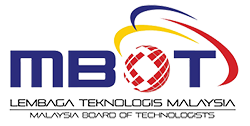Mini Review of Antimicrobial Resistance and River Health: A Dual Crisis and Sustainable Mitigation Strategies
Keywords:
Antimicrobial Resistance (AMR), Antibiotic-Resistant Bacteria (ARB), Environmental Contamination, Wastewater Management, Sustainable SanitationAbstract
Antimicrobial resistance (AMR) and river contamination are interconnected global challenges that threaten public health, environmental sustainability, and water security. AMR, fueled by the overuse and misuse of antibiotics in healthcare, agriculture, and wastewater mismanagement, has led to the widespread emergence of antibiotic-resistant bacteria in natural ecosystems. Simultaneously, poor sanitation infrastructure, untreated wastewater discharge, and industrial pollution have contributed to the degradation of river systems, exacerbating the spread of AMR. This review consolidates insights from four major thematic areas: (1) AMR as a global health crisis and the urgent need for containment strategies, (2) the environmental spread of antibiotic-resistant bacteria and the role of pharmaceutical and personal care products in AMR contamination, (3) the evolution, surveillance, and mitigation of AMR in Malaysia’s rivers, and (4) the relationship between poor sanitation and water pollution, with a focus on sustainable solutions such as the Eliminate, Reduce, Enhance, and Create (EREC) framework and constructed wetlands. By integrating scientific research, engineering innovations, policy enforcement, and community engagement, this review highlights actionable strategies to control AMR and restore river health, ensuring a future of clean water and effective antimicrobial treatments.





